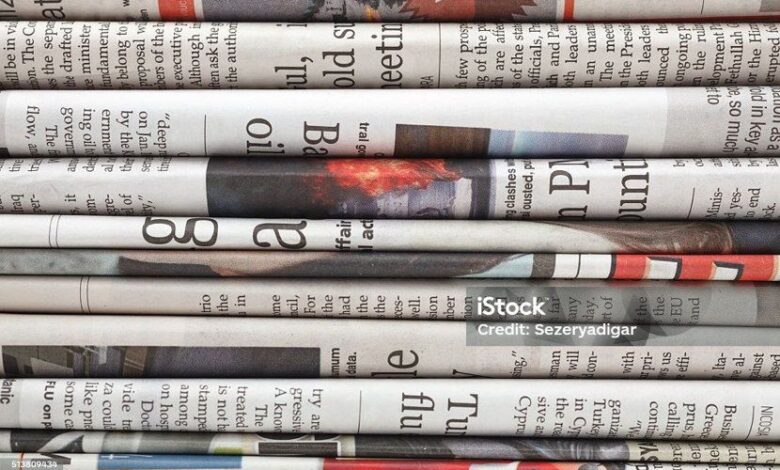Artificial intelligence and information: between advances and ethical challenges

“Any sufficiently advanced technology is indistinguishable from magic.”
Sharing the spotlight
The integration of artificial intelligence (AI) into journalism raises both hopes of positive transformation and fears about its ethical and professional implications. For the Council for Journalistic Ethics and Mediation(CDJM), the rise of artificial intelligence raises a series of questions:
“Will it put out of work some of the professionals whose tasks can now be carried out by simple software? How can we ensure fair remuneration for the authors and publishers whose content feeds the generative AI corpus, and who may legitimately demand a share in the value thus created? Can we really rely on technologies whose biases have often been denounced, accentuating the discrimination suffered by part of the population? Can they lead to a weakening of our democracies?”
Other questions raised by Le Monde
“How can we ensure editorial independence if opaque language models governed by private interests are used by newsrooms? How can we guarantee the integrity of information when the majority of Web content will be generated by AIs? How can we prevent the fragmentation of the information space into a multitude of streams fed by conversational robots?”
Three types of risk are identified by the CDJM
Advantages of AI in journalism
AI offers tools that optimize journalists’ efficiency. Low-risk tasks such as
- spelling correction,
- automated translation for documentation,
- proposing well-referenced headlines on social networks,
- producing inserts or summaries, or even
- transcription of recordings into text,
- citation extraction
- the generation of article ideas from circulating trends,
- creating drafts for publications to be posted on social networks,
- analysis of complex files
are examples of how AI increases productivity without compromising journalistic integrity. These tools enable journalists to focus on more critical aspects of their craft, such as in-depth analysis, information prioritization and fact-checking.
Their role is much more than verifying sources and producing information, it’s to mediate with an audience whose needs and reading habits they learn to understand by interacting with them. They develop their ability to be messengers of often complex news to an often heterogeneous audience. They provide intelligible translations of this rich complexity, far more than the mere concatenation of data.
Ethical and professional risks
However, the use of AI is not without risks. Ethical issues arise, for example, in the automated translation of foreign-language articles, in advanced text-to-speech synthesis for the automatic oral reading of texts with the risk of loss of meaning, in the creation of simplified content, and in the synthesis of electoral, sporting or scientific results, where errors can have serious consequences.
The production and processing of illustrations and images, with the risk of forgeries being circulated; the automated updating of content according to new data available, leading to a loss of control over sources; and the classification of articles by keywords, leading to opinions.
Major concerns are also raised about the potential loss of journalistic jobs and over-reliance on technologies that introduce bias or factual errors linked to automated news outsourcing and less control.
AI and the value of journalism
Over the past 20 years, the transformation of the relationship with information has accelerated with the arrival of free paper newspapers, and then with the spread of news and rumors via social networks, veritable amplifiers of trends. The effect of AI on journalism should not be seen solely in terms of risks or technological advantages. It is also a question of preserving the fundamental value of journalism as a pillar of democracy. Journalists must learn to use AI as a tool to reinforce their role as authority in the analysis and presentation of information, remaining critical of the data produced and processed by AI and favoring an approach that values integrity and editorial independence.
With the computing and graphical power of these new tools, the art of presenting data is being revolutionized (data visualization). The creation of infographics and augmented page layouts has a bright future ahead of it. Art directors, too, are likely to be faced with real dilemmas, such as whether to work with photographers and illustrators or to create productions using image-generating AIs. Charters for the use of AI in each newsroom will set the direction to be taken and the red lines not to be crossed.
Towards a regulatory framework
Faced with these challenges, several international media organizations have called for the introduction of a strict legal framework governing the use of AI in journalism. This framework aims to prevent the dissemination of erroneous information and to ensure that AI tools do not supplant human judgment, but complement it in a transparent and responsible way. The aim is to avoid the propagation of stereotypes,factual errors or biased information .
Enhancing the value of journalism
AI in journalism represents a promising technological advance, capable of revolutionizing the way information is gathered, processed, analyzed, formatted and disseminated. However, it is imperative that this integration takes place with an acute awareness of the ethical implications, ensuring that AI is used in a way that enhances, not detracts from, the value of journalism.
The challenge for industry professionals will be to navigate these opportunities and risks, relying on rigorous ethical standards and a suitable regulatory framework to guide the use of these disruptive technologies.
Sources:
Journalism and AI – Practices and Perspectives https://cdjm.org/journalisme-et-intelligence-artificielle-les-bonnes-pratiques/
Ewag – AI: An Asset for Modern Journalism https://www.ewag.fr/2024/03/intelligence-artificielle-un-formidable-atout-pour-le-journalisme-moderne/
Le Monde – Besoin d’un Cadre Juridique pour l’AI https://www.lemonde.fr/economie/article/2023/08/11/plusieurs-medias-internationaux-demandent-un-cadre-juridique-pour-l-usage-de-l-intelligence-artificielle_6185074_3234.html
La Croix – Journalism in the AI Era https://www.la-croix.com/a-vif/a-l-ere-de-lintelligence-artificielle-le-journalisme-est-un-metier-davenir-20240302
Le Monde – Towards AI-enhanced Journalism https://www.lemonde.fr/idees/article/2024/03/16/intelligence-artificielle-nous-aspirons-a-un-journalisme-augmente-pas-a-un-jugement-humain-diminue_6222377_3232.html
TV5 Monde – What ethics for artificial intelligence?
https://information.tv5monde.com/international/quelle-ethique-pour-lintelligence-artificielle-32454



